Beijing hospital fire: Social media silence shows tightening public opinion space in China
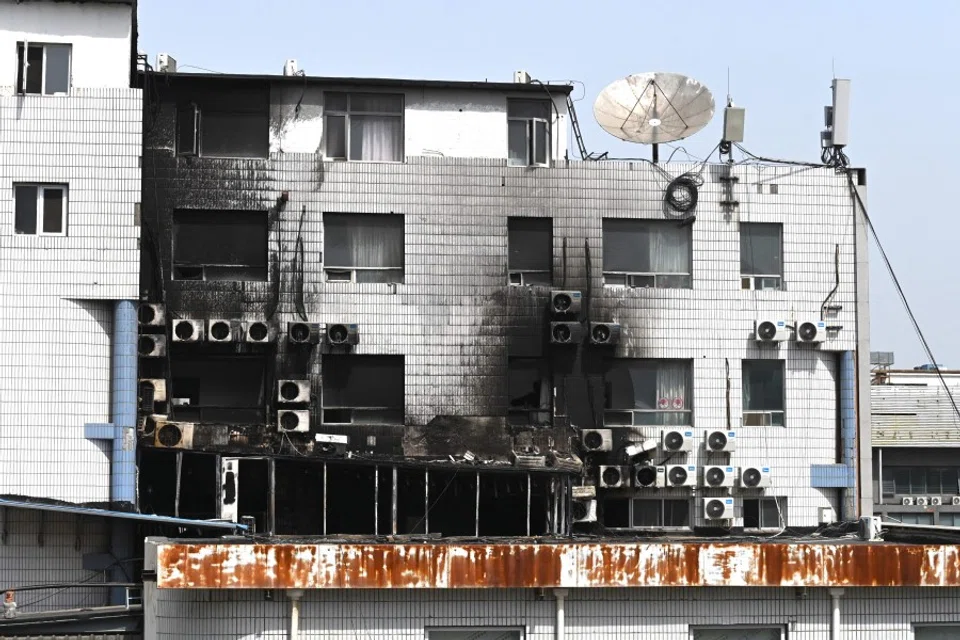
On 18 April, a fire broke out at a private hospital in Beijing's Fengtai district around noon, resulting in the death of 29 people, most of whom were patients. This was the deadliest fire incident in Beijing in years, and 12 people - including the hospital's director and deputy director, along with personnel from the construction company that was carrying out renovation works in the hospital - were detained by the police for alleged major liability in the incident.
Social media was silent, and there was an information vacuum.
Creating an information vacuum
However, what was more shocking was not the severity of the fire but the fact that the news was only made public eight hours after the incident, with a brief report by the official media.
Even in this information era with widespread smartphone usage, coupled with Beijing's population of 20 million people, an entire afternoon had passed as though the fire at Changfeng Hospital never happened. Social media was silent, and there was an information vacuum.
Even my colleagues only found out about the fire from their chat groups after official media reported on it at around 8pm. "How could something so huge happen without anyone knowing?" They were shocked.
An online search showed that Weibo's trending topics were still made up of celebrity gossips, such as Lu Han being spotted in Chengdu, and Shawn Dou and Laurinda Ho's wedding in Bali - all trivialities that were irrelevant to public interest and the hardships of everyday life.
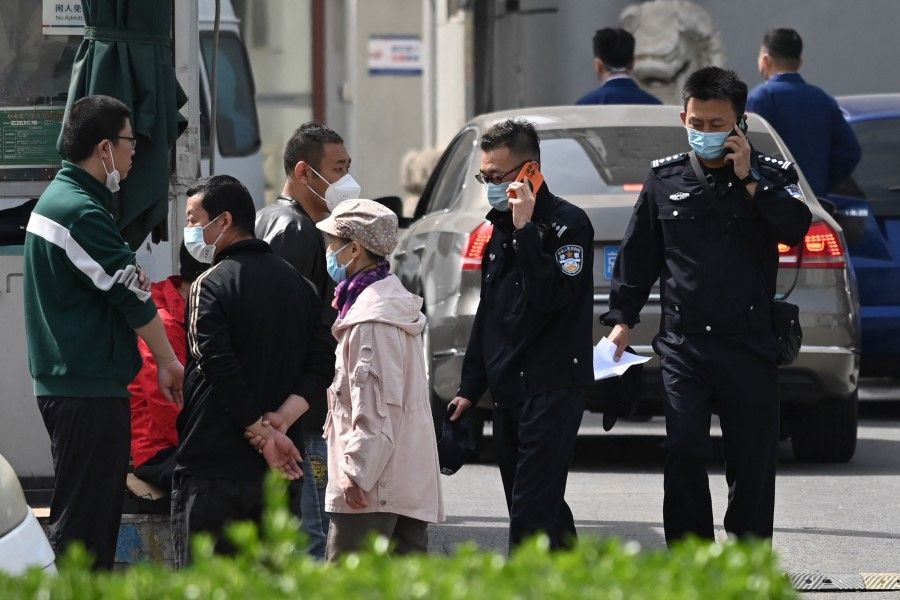
Apparently, there was a Weibo post at around 5 pm that day with the headline "Changfeng Hospital is on fire", showing photos of firefighters and police officers. However, this "isolated post" attracted little attention.
Are Chinese netizens not interested in news about fires? This is unlikely. It is more likely that the Chinese government has become astonishingly adept at controlling public opinion in the immediate aftermath of sudden events. Some media friends commented that the government had "showcased their control capabilities to the max", while others speculated if there was an upgrade to a next-gen social media filter. Indeed, Chinese netizens and social media were completely defeated.
Curbing risk of public opinion storm
It cannot be denied that the authorities and ordinary people in Beijing and other parts of China have deep-seated memories of major fires. Fires are one of the most sensitive issues that often trigger potentially controversial topics such as the housing rights of vulnerable groups, social fairness and justice, urban governance standards, and safety hazard inspections.
The last major fire in Beijing broke out at a low-cost rental apartment block in the suburbs of Daxing district on 18 November 2017, which claimed 19 lives. Meanwhile, the most significant fire in China in recent years was the apartment fire in Xinjiang's capital Urumqi on 24 November 2022, which resulted in 10 deaths and nine injuries. Many blamed the serious casualties on the authorities' strict Covid-19 measures, which hindered rescue efforts and public evacuation.
At that time China was still adhering to the "dynamic zero" policy, and the fire sparked a nationwide "white paper movement" - where people held up blank sheets of paper symbolising censorship - and put pressure on the Chinese government against lockdowns.
... the people's right to information was put on the back burner.
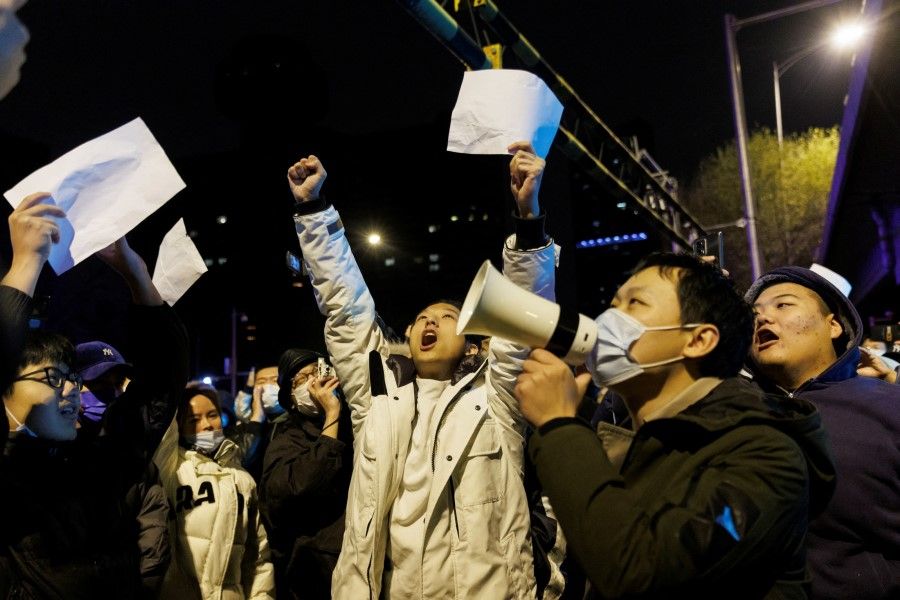
These significant events still fresh in people's minds may have had a direct impact on the actions and decisions of Beijing's leaders in response to the Changfeng Hospital fire, as they were wary of any mistakes that could affect "security and stability in the capital". Hence, the people's right to information was put on the back burner. According to China Youth Daily, not only were the public unaware about the fire, some patients' families did not learn about the incident until watching the news at night, nearly seven or eight hours later - they were not contacted by the hospital at all.
Certainly, the authorities not only regulated public opinion but also made significant efforts after the incident. State media reported that Beijing party secretary Yin Li and mayor Yin Yong, the capital city's top- and second-ranking officials respectively, rushed to the scene on 18 April to direct the work there. They convened an on-site meeting to handle the aftermath of the incident, and visited the injured people at the hospital. They also held a meeting that same night to arrange follow-up measures.
The next morning on 19 April, Beijing held a meeting with the city's senior cadres, calling for the proper management of the aftermath, launching investigations into production safety protocols, and demanding "profound reflection". That afternoon, a press conference was held in Beijing, with officials ready to give an account of the situation.
... if this becomes the authorities' fixed model when responding to emergencies and the people's right to information is sacrificed overtime, wouldn't it be detrimental?
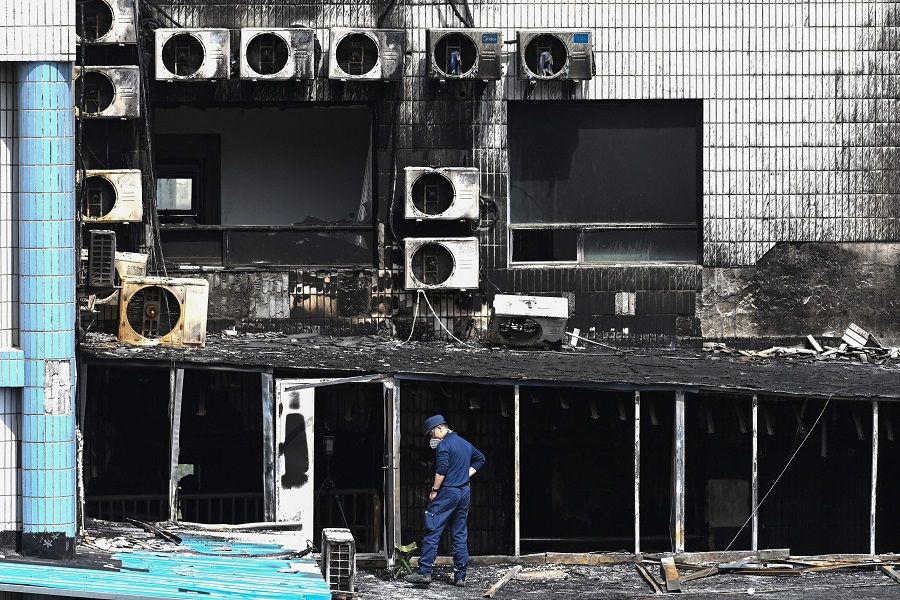
Fengtai District Deputy Head Li Zongrong expressed "deep remorse and guilt" for the situation and "apologises to all the people of Beijing" on behalf of the Fengtai government. Unfortunately, his expressions were obscured as he kept his head down to read from a script the whole time.
Successful management of public opinion?
That same day, several Chinese media outlets outside the control of the Beijing government published in-depth reports from the scene, and provided a different perspective, including the fire inside the hospital, the rescue situation, and the anxiety of the families involved. They also criticised the lack of attention paid to fire management in many institutions. However, nobody knows if such news coverage will be allowed to continue.
The outside world also has no idea whether the authorities consider this round of public opinion regulation a successful one. After all, during the initial chaos, they were able to curb the spread of news and deal with the situation in an orderly manner, and eventually overcame the crisis peacefully before any negative emotions were triggered.
While this seems to be the case in retrospect, if this becomes the authorities' fixed model when responding to emergencies and the people's right to information is sacrificed overtime, wouldn't it be detrimental? For example, if information is not open and transparent, can there be a public assessment of the fairness of the outcome? Can the public be sufficiently convinced?
As a result, the public, including Chinese media personalities, are increasingly indifferent about public issues. Such apathy and callousness is not a good sign.
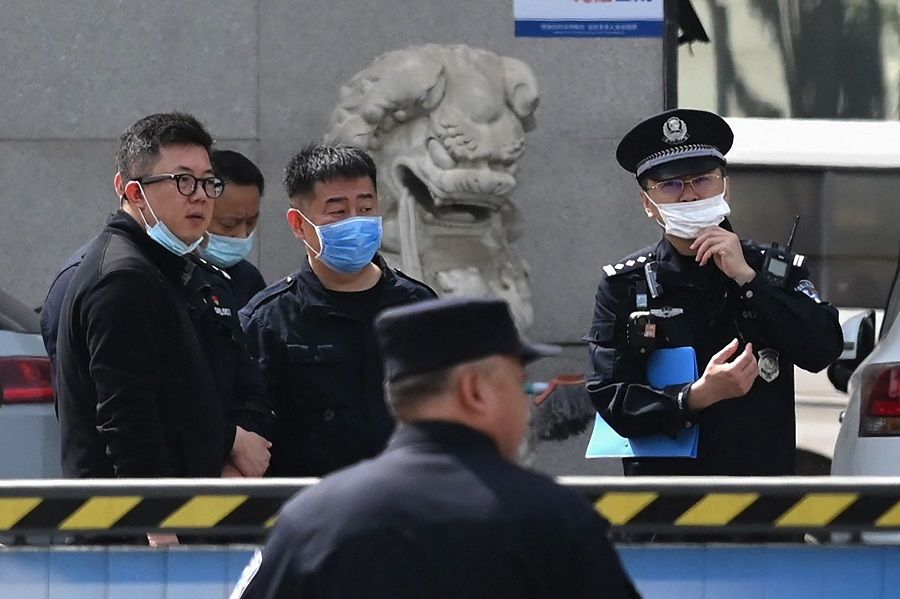
Indeed, social issues can hardly be found on Weibo for some time now. The situation today is the result of what has been gradually happening over the past two or three years, just that the hospital fire incident has highlighted the situation. As a result, the public, including Chinese media personalities, are increasingly indifferent about public issues. Such apathy and callousness is not a good sign.
While politicians have the need to maintain social stability, society's right to information is also a sign of progress. Imagine this: the next time when an emergency happens, the authorities no longer need to rely on "control" but are instead able to communicate effectively with the people, enjoy high credibility and appease the public, even amid an adequate flow of information. Is this too high of an expectation to have?
This article was first published in Lianhe Zaobao as "北京长峰医院大火中的危机应对方式".
